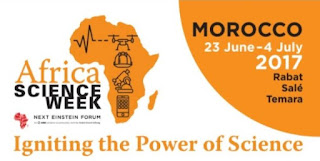The
George Floyd tragedy in Minneapolis, Minnesota, on 25 May can be summed up as follows:
A handcuffed man is seen lying face down on the ground looking distressed as another man had a knee on his neck.
"I can't breathe," Mr Floyd (whose neck was at the receiving end of the knee) said repeatedly, pleading for his mother and begging "please, please, please".
Bystanders witnessing what was going on urged the police officers to check Mr Floyd’s pulse; one of the officers did just that, checking his right wrist, but "couldn't find one".
The ‘knee on the neck man’ was later identified as police officer Derek Chauvin.
The consequence of the inaction by Derek Chauvin, and the widespread public reaction this generated has already been extensively documented.
Anyone who saw the distressing images of George Floyd’s final hours on this earth would also have had two questions which needed answers: “Why was George Floyd not
listened to? Why were all those witnesses who intervened to plead on his behalf for medical attention not promptly
listened to?”
Listening and Power Relations
It was obvious from the George Floyd tragedy that there was a power relationship involved: a person in authority who decided that the person he was dealing with didn’t deserve to be listened to, leading to the fatal consequences.
This inappropriate exercise of power was also the pattern with practically all the publicised cases from previous incidents which were recalled following the George Floyd tragedy.
The
Eric Garner case in New York in 2014 and the publicised cases in Australia of
David Dungay Jr. in 2015 and
Daniel ‘Danny’ Richards in 2019, all of which involved negative responses by the arresting officers when the victims were heard saying they couldn’t breathe are just three examples.
They all died because they were not listened to by people who had power over them.
Derek Chauvin didn’t react positively because he refused to listen to all the distressing pleas coming from George Floyd.
The Importance of Listening: Listening to Understand
Listening is an important, if not
the most important, aspect of human relations. We listen to what has been said and heard, reflect on this in order to understand each other. There is nothing more hurtful than the feeling that one is not being listened to.
Listening also goes beyond merely hearing: we hear a lot of things, but we don’t dwell on all of them, listening to only some of these. Hearing, combined with attention, means
listening and this is the desirable option.
Listening as a Professional Requirement
Listening is an important professional requirement: in Health, Education, Politics, as well as the other professions (including the retail industry) set up to provide services to the public.
Most of us might be familiar with the slogan “We are listening” during election time, when politicians do their best to try to convince us to give them our votes; politicians know that voters insist on being
listened to.
When one goes to see a doctor, the first thing the doctor will do is to listen to what the patient says before going on to carry out an examination and to offer the subsequent diagnosis.
Likewise, the learning process in education requires attentive listening on the part of both the receivers of the knowledge and the givers: pupils and students on the one hand and the teacher on the other.
Hence, politicians, healthcare professionals, teachers and anyone in the business of providing a service to the public would need to remember that
listening is an indispensable skill.
The writer and director of
The Communications Clinic, Ms Terry Prone, in her book
Talk the Talk (sadly, out of print; perhaps, the publishers might consider a reprint run?) set us a ‘Listening’ challenge. Anyone who took up this challenge might be surprised with the results.
There is no doubt George Floyd will be alive today with us if that important aspect of human relations:
listening, had been observed.
Let us hope George Floyd didn’t die in vain and that we honour his legacy by remembering to
listen to our fellow humans, no matter their background: social, economic or birth (ethnicity / nationality).





































